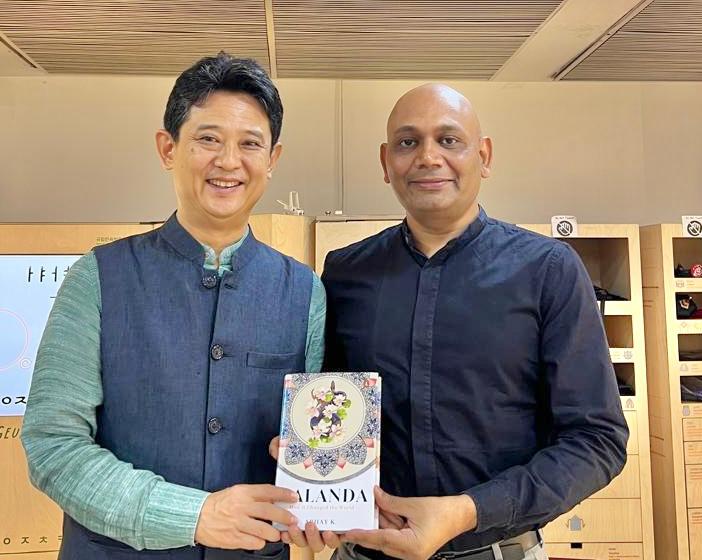
Korean Cultural Centre hosts discussion on Abhay K's book 'Nalanda: How it Changed the World'
Jun 26, 2025
New Delhi [India], June 26 : The Embassy of the Republic of Korea and the Korean Cultural Centre in New Delhi hosted a thought provoking book talk on 'Nalanda: How It Changed the World.'
The book was written by author and diplomat Abhay Kumar, Deputy Director General of Indian Council for Cultural Relations (ICCR). The event was held at the Korean Cultural Centre and was participated by scholars, students and literature enthusiasts. 

The book talk followed a conversational format, with Lim Sang Woo, Deputy Chief of Mission of the Korean Embassy, engaging the author in a series of insightful questions.
The discussion touched upon inspiration behind the book, the historical significance of Nalanda as a great center of learning and its enduring relevance in today's global context.
The conversation explored a wide range of themes, including the origin of the book, Nalanda's contributions in the field of education, philosophy and spiritual thought, lives of prominent monks and scholars who once lived and studied there, and its lasting impact on the world.
A highlight of the discussion was Nalanda's deep-rooted connection with Korea. In particular, Ambassador Kumar recounted the journey of a prominent Korean monk Hyecho from the Silla Kingdom who travelled to India in 723 CE to deepen his understanding of the language and culture of the land of Buddha and studied at Nalanda.
His travelogue 'Wang Ocheonchukguk Jeon' or 'A Memoir of the Pilgrimage to the Five Kingdoms of India' offers a valuable account of his experiences in India, including his visit to Magadh, Kushinagar and Varanasi. His writings remain a lasting link in the centuries-old connection between India and Korea.
Nalanda: How It Changed the World by Abhay K (pen name of Ambassador Abhay Kumar) presents a compelling narrative of how Nalanda evolved into a renowned seat of learning and how its legacy not only changed the world but had an enduring impact on Korea's spiritual foundation.
This book is a well-researched work and offers a rare insight into the legacy of Nalanda for the readers who are keen to explore its historical and cultural significance.
The Korean Embassy looks forward to continue its collaboration with India to deepen its multi-faceted ties, with a shared commitment to preserving and prompting the legacy of Nalanda as a symbol of enduring cultural and historical connection between the two countries.

























